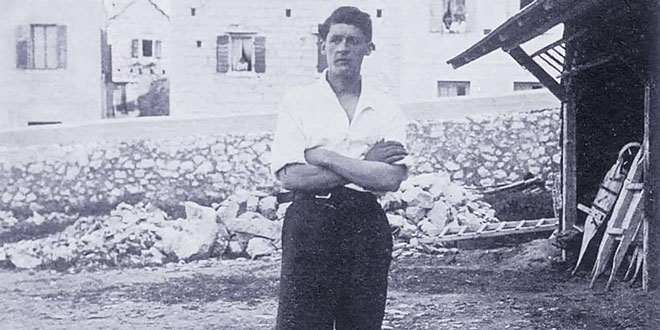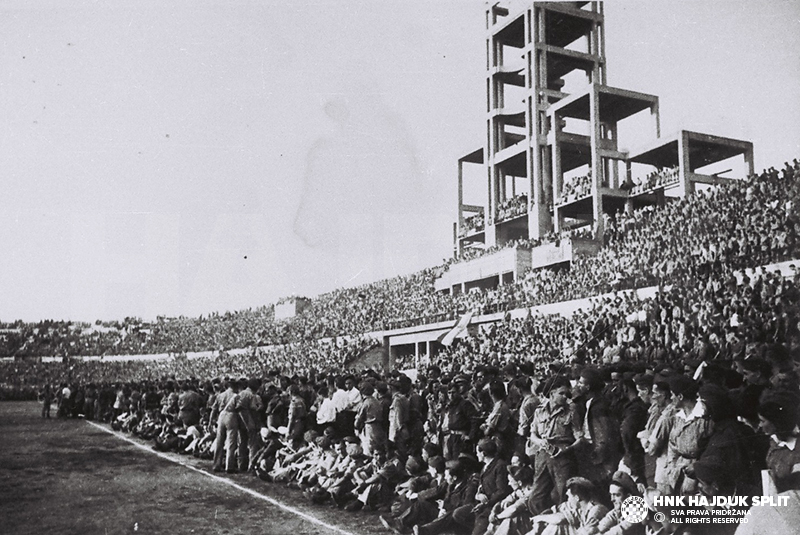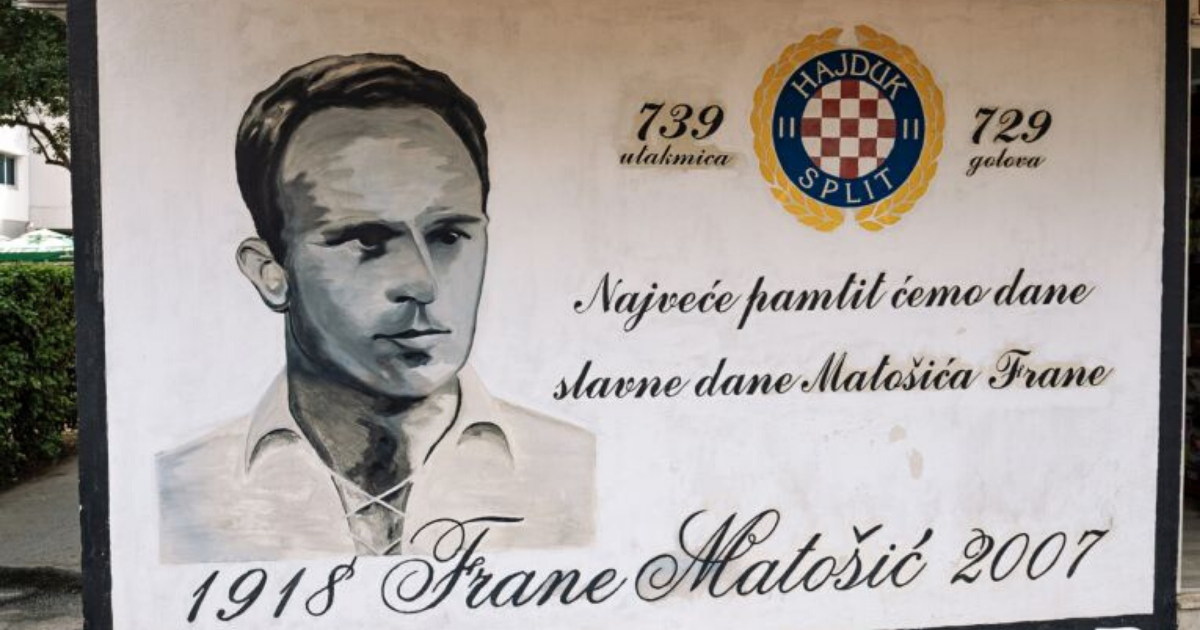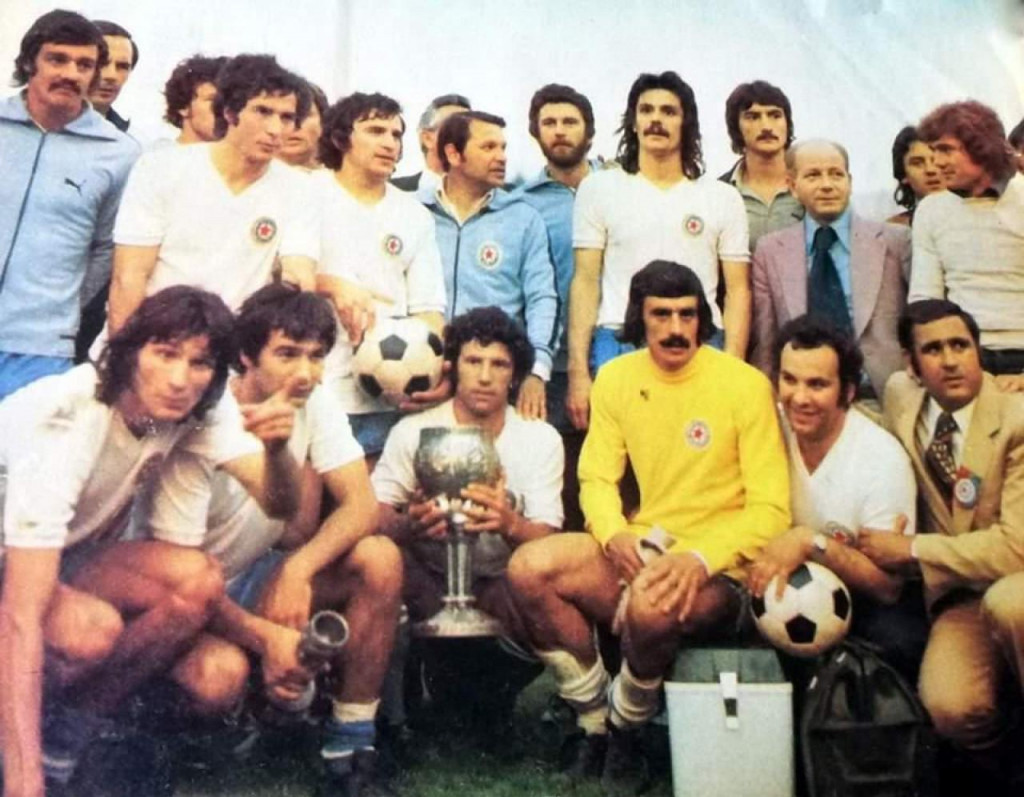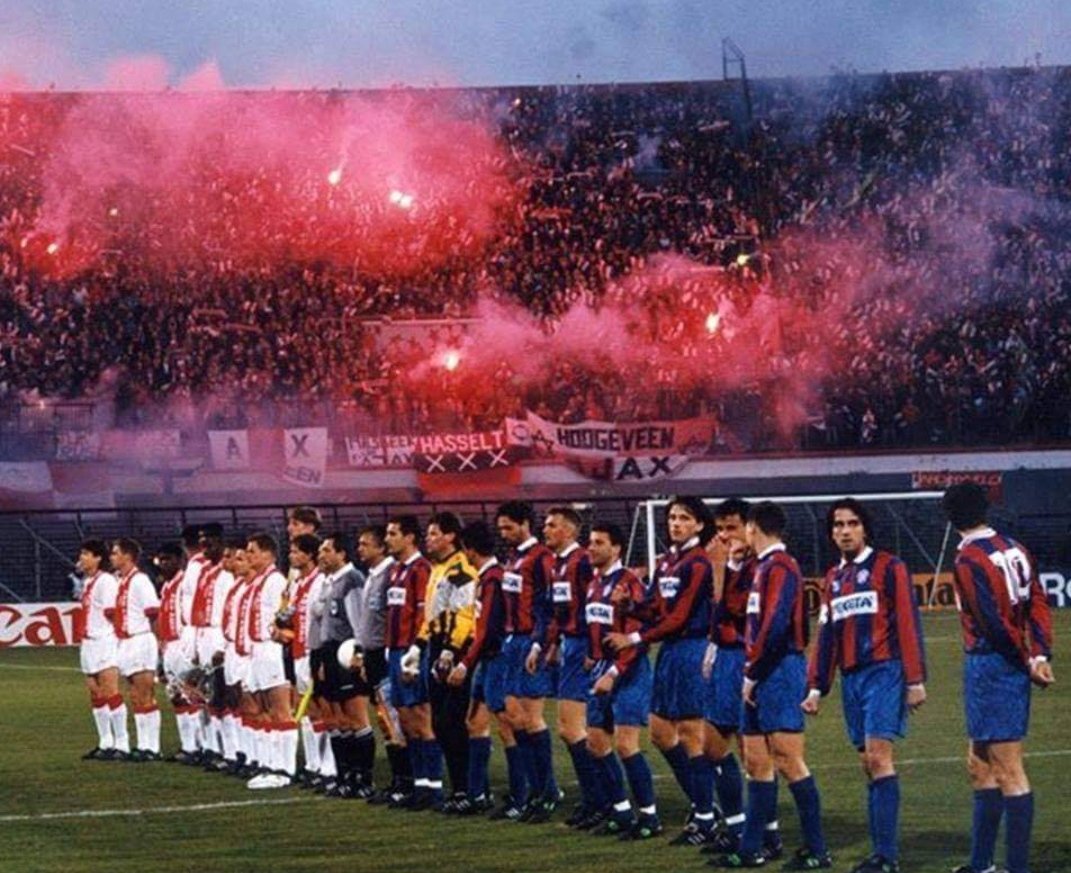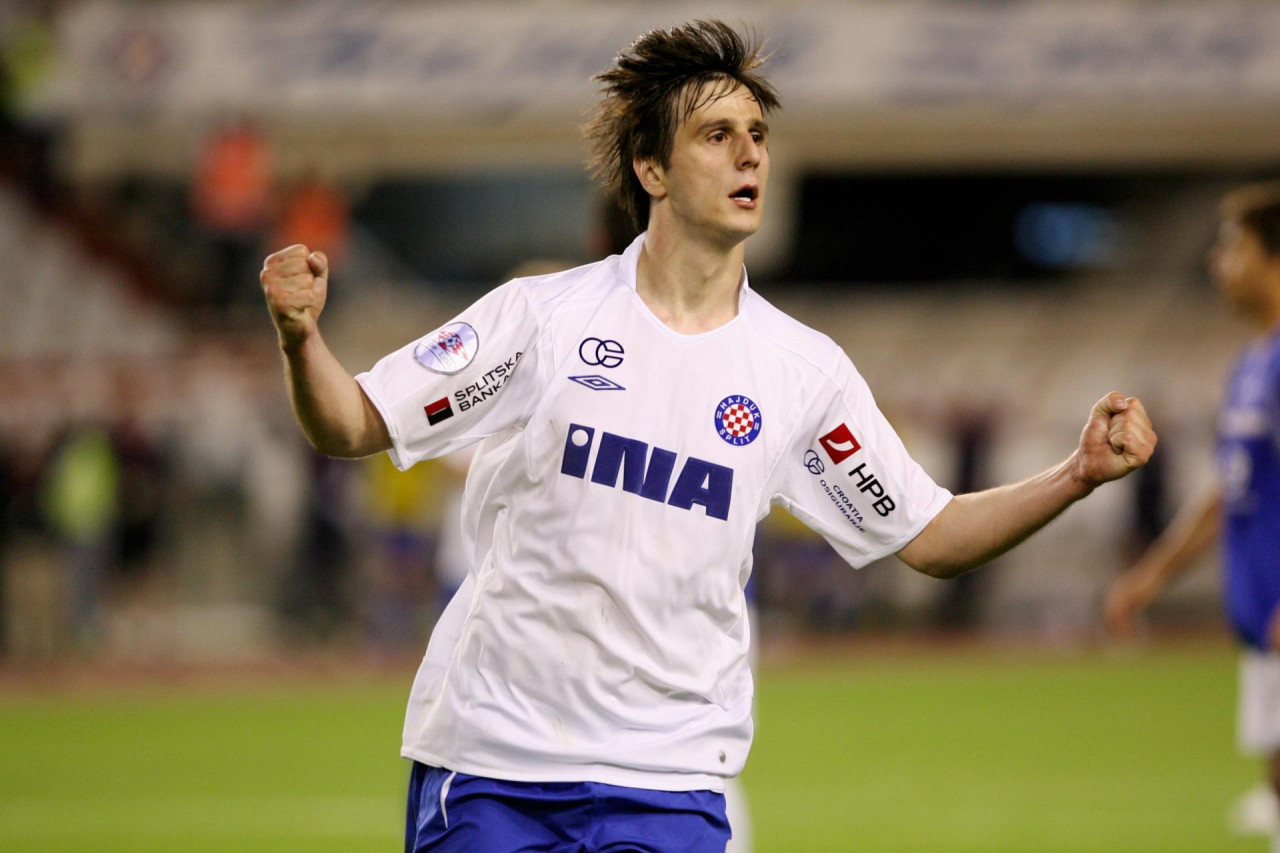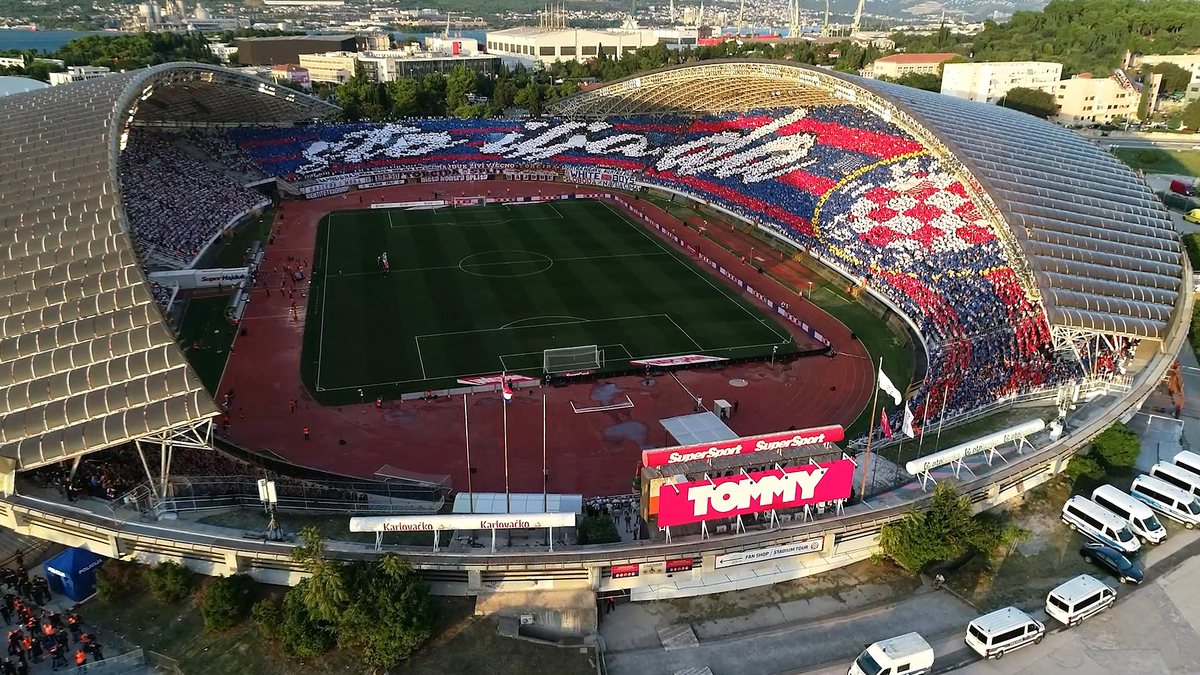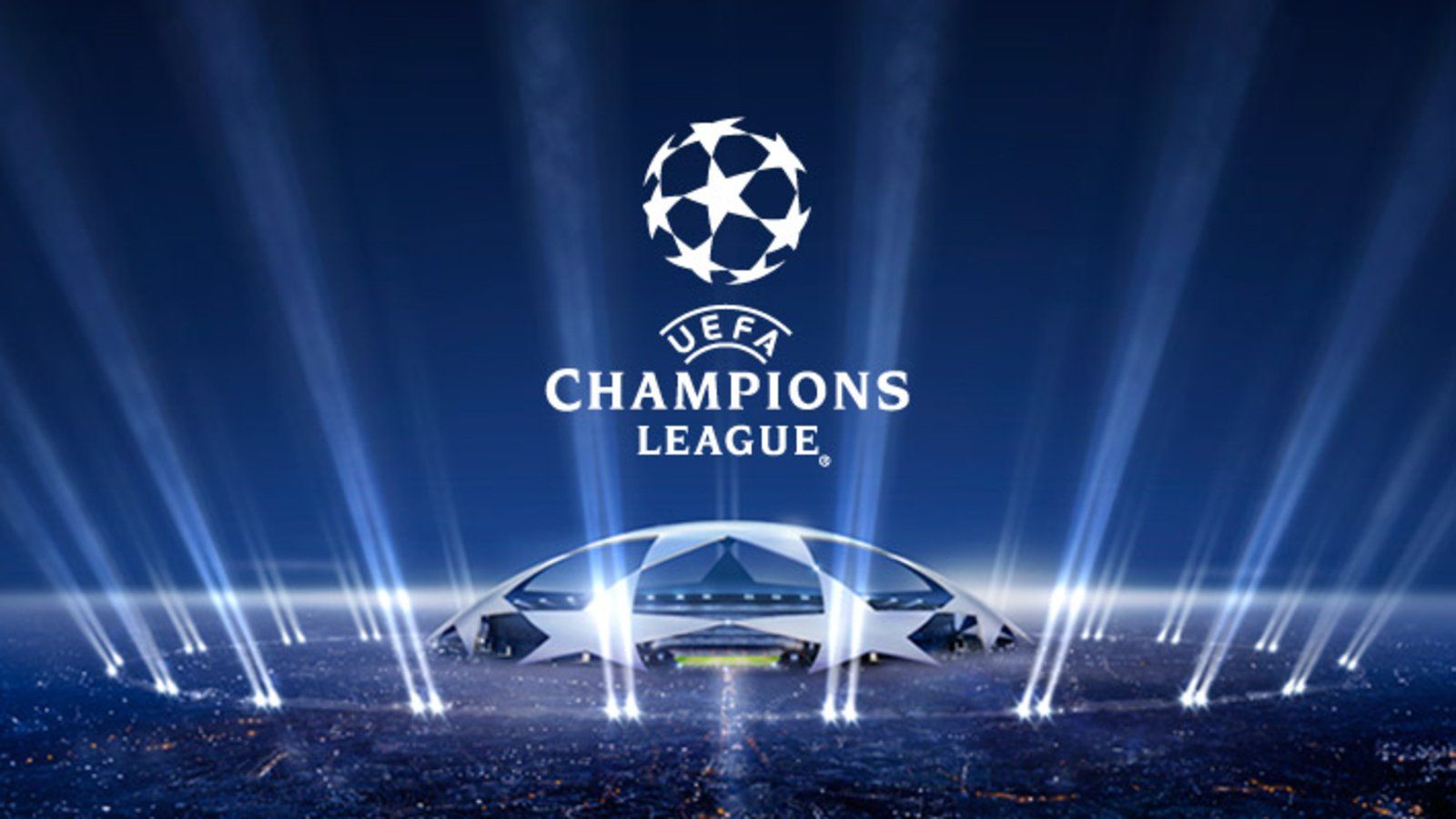West Ham United redux
Author's note: This is a remake of my first ever post on this thread, now with more expansive information akin to my most recent posts
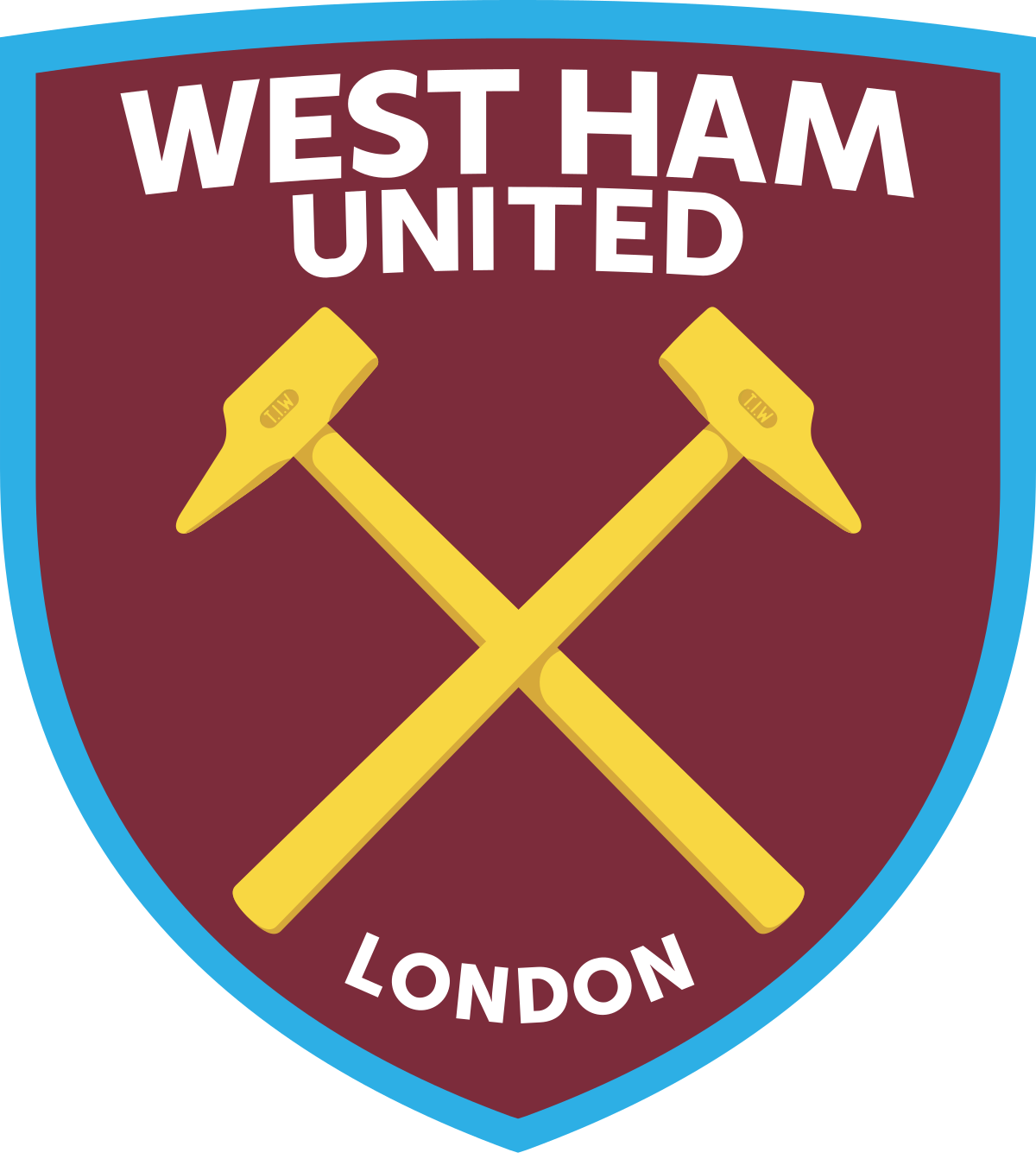
Name: West Ham United
Year of birth: 29 june, 1895 (as Thames Ironworks)
Ground: Boleyn Ground
Capacity: 42,000
Nicknames: the hammers, the irons
League: Football League First Division
HONORS
DOMESTIC
First Division: 1985-1986, 2004-2005, 2005-2006, 2009-2010, 2012-2013
FA Cup: 1963-1964, 1974-1975, 1988-1989, 2002-2003, 2004-2005, 2006-2007, 2009-2010, 2011-2012
League Cup: 1965-1966, 1986-1987, 1989-1990, 2005-2006, 2006-2007, 2012-2013, 2014-2015
EUROPEAN
Champions League: 2006-2007
UEFA Cup: best finish quarter-finals 2008-2009 and 2011-2012
Cup Winners Cup: 1964-1965, 2003-2004, 2012-2013
Intertoto Cup: 1998-1999
West Ham United, based on the west side of the river Thames, in London, was founded as the works team of Thames Ironwork in 1895, itself a succession of clubs Castle Swifts and Old St. Lukes. The club was founded on the principles of reconciliation between the management and the workers of Thames Ironworks following a series of strikes.
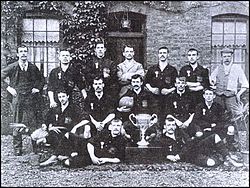 Thames Ironworks, circa 1896
Thames Ironworks, circa 1896
History as Thames Ironworks (1895-1900)
Starting out in the London League and playing notable friendlies under the first examples of playing with Floodlights at their first home of Hermit road against notable London clubs Woolwich Arsenal and West Bromwich Albion, the team turned pro when they intergrated the southern league second division in 1898. Two successive promotions followed, leading to access to the Football League's top division, and a subsequent renaming of the club to its current name, in 1900. Despite the shift in name, the club's fans still refer to the team as the hammers or the irons, and they have quickly developed a working class image that still exists to this day, playing friendlies against other working class clubs across the UK and the world.
The new club played at the memorial grounds in Plaidstow, which was owned by Arnold Hills, a major shareholder in the club. Initially doing well in their first years in the top flight, the club saw its finances increasingly disappearing due to the locals feeling estranged from.the team, and a feud between the board and Hills meant that the club were forced toove to their current home, the Boleyn Ground. Receiving funding from sponsors, community initiatives and brewries, the stadium that would inherit the name Boleyn Ground would come to life in 1904, starting as a 20,000 spectators stadium, a far cry to the 40,000+ seater that it is today.
Their first game at their new stadium was a 3-0 victory over their fierce rivals Millwall. Their intertwined histories saw West Ham being promoted instead of the latter. While Millwall, frustrated by the FA's decision and fueled by animosity towards West Ham after the former's fans refused to support a strike involving West Ham fans, refused promotion to the league while West Ham qould go on to the top division and an FA Cup final in 1923 at the first final held at the newly constructed Wembley Stadium, albeit losing to Bolton Wanderers 2-0.
The West Ham side of the 1920s was an attractive, attacking side coached by Syd King and featuring skilled forwards like Vic Watson, Jimmy Ruffel and Syd Puddefoot amd england international Ted Hufton.
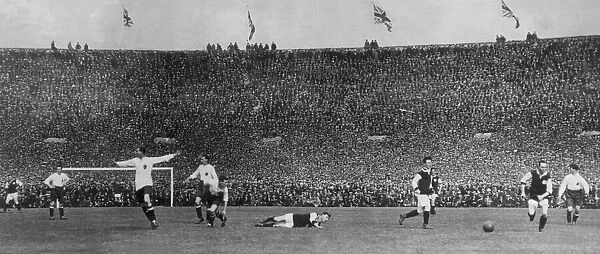 West Ham vs Bolton in the first FA Cup final at Wembley, in 1923
West Ham vs Bolton in the first FA Cup final at Wembley, in 1923
1932-1950: Rusty hammers
As the lost decade of the 30s arrived, however, West Ham would be struck by the death of manager Syd King, who took his own life following an alcohol-fueled depression in 1932. Combined with a losing streak late in the season, the club would be relegated to division 2 at the end of the season, and would not see the top flight for a long while.
During those bleak years, Charlie Paynter, King's assitant manager, took over and spent those times rebuilding the entire club from the ground up, investing heavily into a youth facility in Romford, a school that would later rise to fame as the academy of football.
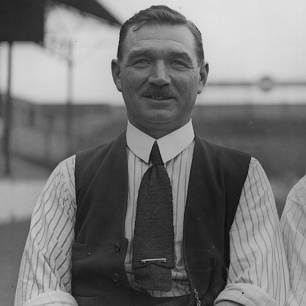 Charlie Paynter, saviour of West Ham.
Charlie Paynter, saviour of West Ham.
THE FENTON-GREENWOOD ERA (1950-1976)
Ted Fenton, taking over from his mentor Paynter at the latter's retirement, further modernised West Ham and increased funding for the academy, implementing fresh new tactics inspired by the Hungarian golden team that famously battered England and opening the now club trademark Café Cassettari, a place where club players could eat good food and discuss and do activities together.
Key to West Ham's arrival in modernity, however, was center back and trainer Malcom Allison, who became a tough, but fair mentor to many legends of the club, instauring extensive training programs that made West Ham players into some of the fittest and most tactically astute in the game. All those efforts paid off in 1958, where John dick's goals and the emergence of future club and england captain Bobby Moore in defense.
Ron Greenwood, former Arsenal assistant manager, took over in 1962 and guided west ham to its first major trophy in the FA Cup in 1964. With Moore imperial in defense, Martin Peters dazzling fans and opponents in midfield and Geoff Hurst banging in the goals, supported by veterans John Bond and Ken Brown and the club's first black player in fullback John Charles, West Ham would become a constant threat in cup competitions, the summit being reached the following season, where they won their first european trophy in 1965 against 1860 Munich and a young Franz Beckenbauer.
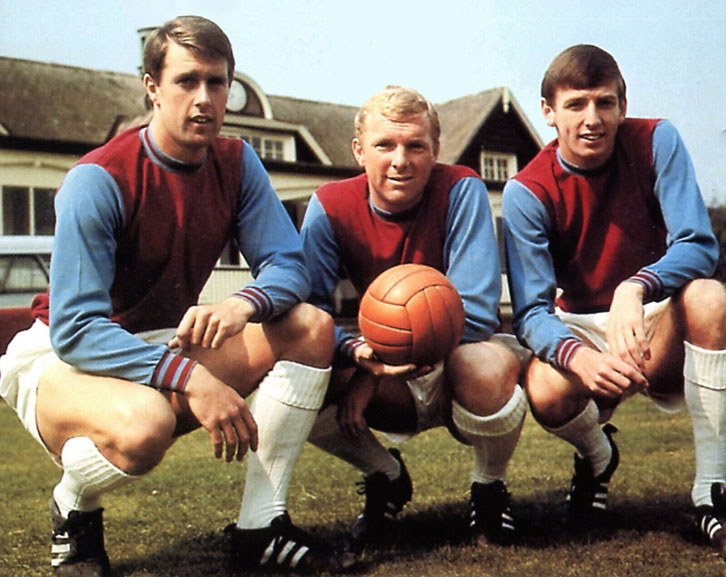 The academy's world cup heroes
The academy's world cup heroes
Over the next few years, more graduates like Billy Bonds, Trevor Brooking and Frank Lampard, along with goalkeeper signing Bobby Ferguson, West Ham and Greenwood would remain competitive in the 70s, winning the league cup for tbe first time ever in 1966, their second FA Cup in 1975 and reaching the 1976 Cup Winners cup final, losing badly to Rob Rensenbrink's Anderlecht 4-2.
JOHN LYALL ERA: THE BOYS OF 86 AND FIRST GOLDEN AGE (1976-1990)
After the failure to clinch the cup winners cup, John Lyall, a former player of the club, took over as manager. While they would be stunned by relegation to the second divsion in 1978, west ham would be back soon enough in the top flight once the 80s turned around. The likes of Alvin Martin, Tony Gale, Alan Dickens and Tony Cottee made their debut and helped the club go back up.
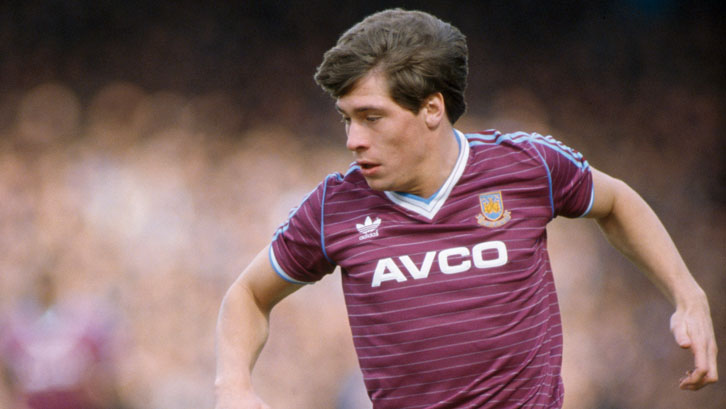 Tony Cottee
Tony Cottee
English and european football in the 80s was dominated by the great Liverpool side of Bob Paisley, with their merseyside rivals Everton and Gary Lineker rising up as their only potential challengers. As such, entering the 1985-1986 season, West Ham were simply expected to at best qualify for the UEFA Cup, at worst finishing in mid-table. However, Tony Cottee's insane goalscoring form and Liverpool and Everton's unexpected dip in form mid-season meant that West Ham found themselves as unexpected dark horses for the league title. The hammers would then go unbeaten for the entire second half of the season, forcing a three-way showdown for the title on the final matchday against Liverpool and Everton.
The reds would shockingly draw with Chelsea following Dabid Speedie's wonder goal for the blues, while West Ham did everything they could to prevent everton from scoring until the last minute, where Gary Lineker received a cross from Adrian Heath...only to stunningly send it over the crossbar, thus ending the match on a 0-0 draw, giving the league title to West Ham in one of the most stunning upsets in english football history.
 the boys of 86
the boys of 86
When you are champion, you can do two things: either get even stronger, or ride it out with the same team, with the risk of never repeating the same success. Feeling motivated by the cash injection of Champions Cup football, John Lyall opted for the former, strategically strengthening key positions with both long term signings and youth graduates. The likes of George Parris at Left back, Paul Ince in midfield and Steve Potts at both right back and center back joins their fellow graduates Cottee and Dickens, surrounded by the arrivals of Birmingham City's goalkeeper David Seaman and AC Milan's departing Englishmen Mark Hateley and Ray Wilkins. The latter, being in the best shape of his life at Milan, would become a key mentor for Ince and Dickens in midfield, while Hateley and Cottee would form an electrifying partnership up front and Seaman would save the club multiple times with his spectacular saves, especially against Liverpool in the 1987 League Cup final, won 2-0 thanks to Cottee and Mark Ward.
John Lyall would also proceed with signing the club's first ever foreign player in 1988-1989, as he brought in swedish winger/number 10 Anders Limpar to Essex for a club record fee of $1 million after his stellar performances for Sweden at the 1986 world cup and the 1988 Euros. That season would see Ince, Parris and Potts further solidify their presence in the starting 11, while Cottee and Hateley scored a total of 30 goals combined with Limpar adding a fresh dynamism in the 3-man trident formed with the former 2 up front in a 4-4-2 diamond formation. They would finish a very distant 3rd behins Liverpool and Arsenal in the league, but would compensate with a dramatic and heartstopping FA Cup final agaisnt the merseyside reds, with David Seaman again being the hero of the day at Wembley, stopping Michael Laudrup, John Barnes and Ian Rush from scoring in a dazzling display of goalkeeping to force a penalty shootout, where he was once again majestic, stopping every shot coming his way as the veteran Wilkins calmly slotted in his penalty to give West Ham its third FA cup.
West Ham 1988-1989 FA Cup Winners
Seaman
Potts Martin (C) Gayle Parris
Wilkins (regista)
Ince (box-to-box) Dickens (Mezzala)
Limpar (free-roamer)
Hateley Cottee
Finally, the 1989-1990 season sees West Ham, now reverting back to 4-4-2 with Wilkins leaving for QPR and George Parris moving to left wing to make way for new signing Julian Dicks at left back (with Limpar subsequently moving to the right), finish in 5th, but winning the league cup after defeating Derby County and Southampton on penalties and Paul Ince scoring and providing the game winning goal to Cottee in the final against Brian Clough and Nottingham Forrest.
This first golden age wasn't fruitful for West Ham in europe, however. In the 86-87 european cup, they lost in the second round to Brondby, while in the cup winners cup, they would be eliminated twice by Sampdoria, in the second round in 88-89 and, more heart-breakingly, in the 89-90 semi-finals, with a tackle by Ince on Vialli in the first leg at Boleyn Ground leading to a tough oenalty call that many Hammers faithful accuses of being unfair, as they argue that Vialli was outside the box. The 1990-1991 CWC would see the club falter against a much stronger Milan side in the second round.
BILLY BONDS ERA: UPS AND DOWNS IN THE FIRST DIVISION AND REBUILDING (1990-1997)
John Lyall let his contract expire at the end of the 1989-1990 season, prompting the club to hire his assistant and yet another old club player, billy bonds.
The 1990 off-season would see West Ham lose David Seaman to Arsenal and Paul Ince to Bobby Robson's Manchester United. Russian goalkeeper Dmitri Kharine signed on to replace Seaman, and West Ham would finish in the upper half of the table in 1990-1991 and 1991-1992, but the following years would see the gradual departures of many of the club's best players. George Parris would leave for Birmingham city in 93, alan dickens to Chelsea that same year, Anders Limpard to Everton in 1994 and, finally, Tony Cottee would leave for Leicester City as a free agent in 1996
REDKNAPP ERA: THE RESSURGENCE (1997-2004)
Harry Redknapp, taking over from the assitant job, maintained the club in the first division amidst tough seasons from 1996 to 1998. Redknapp's tenure would see the gradual intergration of players that formed the extremely successful West Ham youth teams in the mid-90s, with Rio Ferdinand, John Terry and Frank Lampard Jr all becoming first team regulars by 1999, the year where they unexpectedly won the intertoto cup, qualifying for the champions league thanks to the expansion of the tournament to include the previous season's european cups winners.
As the new millenium arrived, more and more graduates from the academy amde their way through the team. Joe Cole, Jermaine Defoe and Glen Johnson joined Ferdinand, Terry and Lampard, while West Ham would also boast cult heroes the likes of trevor Sinclair, John Hartson, Frederic Kanouté and the ever enigmatic Italian Paolo Di Canio.
 Frank Lampard and Rio Ferdinand in their early days
Frank Lampard and Rio Ferdinand in their early days
In an era dominated by the big 3 of Manchester United, Leeds United and Arsenal, West Ham under Redknapp would would nonetheless consistently qualify for the UEFA Cup spots, earning the young graduates valuable experience against some of the best clubs in the world. Such experience would end up being crucial, for West Ham would win their 4th FA Cup in 2003 against Johan Cruyff's Arsenal, having survived an incredible game against Manchester United in the fourth round which ended 4-3.
2003-2004 would confirm this golden generation's huge potential. Michael Carrick brings some much needed solidity as a defensive midfielder, and the signing of Wayne Bridge at left back proved fruitful. Defoe, Cole and Lampard had their first great season as West Ham finoshed way behind the dominant Arsenal in 2nd place, while in the cup winners cup, they defeated the likes of Auxerre, Spartak Moscow and Leeds United before defeating Michael Ballack's Bayer Leverkusen in the final to win their third european trophy.
GOLDEN GENERATION (2004-2015)
Despite the players loving Redknapp, the West Ham board felt that this team needed the kind of coach that will take them to the next level and finally take the fight to the big clubs in england. So out went Redknapp and in came none other than overnight sensation, FC Porto's champions league winning coach José Mourinho. breaking from tradition for both West Ham and English Football, the special one, as he called himself at his introductary press conference, would switch to a 4-3-3, implement his revolutionary psychological and physical training methods from Porto and, sensing the team's first squad was very strong but lacking in depth, proceeded to sign several continental players such as Braga's talismanic midfielder Tiago Mendes, Cameroonian Utility man Geremi from Real Madrid, Jiri Jolesik from Sparta Praha and czech goalkeeper Petr Czech from french side Stade Rennais alongside the domestic signing of Damian Duff from Blackburn Rovers and the promotion of the likes of midfielders Nigel Reo-Coker and Mark Noble, Rio Ferdinand's younger brother Anton, left winger Kieran Richardson and striker Dean Ashton.
Mourinho's innovative counter-attacking tactics and the golden generation hitting their prime resulted in an unprecedented two seasons of utter dominance in the first division. The message was sent on the very first day, where West Ham hosted Manchester United in the season opener at Boleyn ground. The class of 92 and Sven-Goran Eriksson couldn't do anything against the tactics of Mourinho and the brilliance of Lampard, Carrick, Defoe and Joe Cole. One by one, Leeds, Arsenal, Liverpool, Newcastle, Aston Villa and Tottenham, all the usual title contenders of the past few years crumbled before the new lords of the english game as West Ham would trounce to their second ever league title and their 5th FA cup in 2004-2005, while 2005-2006 would be even better, losing only 3 games in the league to retain their first division title and winning the league cup, with their hopes of a treble being dashed by the stunning upset loss to Villareal in the 2005-2006 champions league semi-final.
All the focus was on the champions league in 2006-2007, leading to the club conceding the first division to Man Utd. However, it wouldn't matter, for they would achieve a cup treble, winning both domestic cups in dominant fashion before finally conquering europe, shutting out Lyon 2-0 in the champions League final.
The Mourinho era would end in the same way as it began: with a bang. The players were getting increasingly tired of Mourinho's abrasivness, and it would lead to them not winning the league or the domestic cups in 2007-2008. In the champions league, however, they would go all the way to the final, with a lineup, aside from Oetr Cech, entirely composed of academy players.
2007-2008 West Ham champions League final lineup
Cech
Johnson Anton Rio Terry Richardson
Carrick Noble
Lampard
Defoe Cole
However, as great of a story as it was, they simply couldn't score agaisnt a spirited Manchester United side of Eriksson, the last great years of the class of 92 and Van Der Sarr and Wayne Rooney in his prime. In the dying minutss of the game, David Beckham scored a signature curled free kick to end the match 1-0 in Man Utd's favour, leading to the sacking of Mourinho.
Thankfully, another world class coach was available after ending his own dynasty in Milan: Carlo Ancelotti joins the club for the 2008-2009 season, and the club would finish 3rd behind Liverpool and a ressurgent Fergie and Leeds United in 2008-2009 before winning a league-FA Cup double in 2009-2010. Ancelotti led West Ham once again to the champions league final in 2011, but sadly, they faced a peak Barcelona and Messi under Guardiola, and were soundly beaten 3-0. An FA Cup in 2011-2012 was followed by a treble of league, league cup and cup winners cup in 2012-2013.
Ancelotti would then take over Real Madrid, with Mourinho going the other way for his second stint. It would be far less successful, however, with the club only winning the 2014-2015 league cup as the golden genration aged out, with West Ham finoshing in a disastrous 15th palce in 2015-2016.
Falling back to earth (2016-2021)
As with that, the golden generation ends in a wimper. During the subsequent rebuilding years, West Ham would become an upper-mid tier side, finishing comfortably mid-table with occasional top 8 finishes under both Slaven Bilic and club icon Frank Lampard. Players like Manuel Lanzini, Marko Arnautovic, Michal Antonio, Winston Reid, Lukas Fabianski and Aaron Cresswell starred for the side, and while they are fairly good by themselves, it was a far cry from the generation prior.
RESSURGENCE UNDER DAVID MOYES (2021-Present)
The academy of football still produced top tier talents, with the likes of Reece Oxford, Reece Burke, Declan Rice and Ben Johnson quickly becoming first-team regulars under new coach and former Everton and Leeds United manager David Moyes. Boosted by shrewd signings like Slavia Praha's Vladimir Coufal and Tomas Soucek, relegated Southampton's James Ward-Prowse, Hull City's Jarrod Bowen and the january signing of River Plate's Julian Alvarez, West Ham would finish 2021-2022 in 7th, qualifying for the Intertoto cup the next year. They would reach the final of 2022-2023 Intertoto Cup, losing to FC Basel on Penalties in heartbreaking fashion. Nonetheless, West Ham has shown signs of growth under Moyes, and things are looking up for the future.

UP THE IRONS!!

Name: West Ham United
Year of birth: 29 june, 1895 (as Thames Ironworks)
Ground: Boleyn Ground
Capacity: 42,000
Nicknames: the hammers, the irons
League: Football League First Division
HONORS
DOMESTIC
First Division: 1985-1986, 2004-2005, 2005-2006, 2009-2010, 2012-2013
FA Cup: 1963-1964, 1974-1975, 1988-1989, 2002-2003, 2004-2005, 2006-2007, 2009-2010, 2011-2012
League Cup: 1965-1966, 1986-1987, 1989-1990, 2005-2006, 2006-2007, 2012-2013, 2014-2015
EUROPEAN
Champions League: 2006-2007
UEFA Cup: best finish quarter-finals 2008-2009 and 2011-2012
Cup Winners Cup: 1964-1965, 2003-2004, 2012-2013
Intertoto Cup: 1998-1999
West Ham United, based on the west side of the river Thames, in London, was founded as the works team of Thames Ironwork in 1895, itself a succession of clubs Castle Swifts and Old St. Lukes. The club was founded on the principles of reconciliation between the management and the workers of Thames Ironworks following a series of strikes.

History as Thames Ironworks (1895-1900)
Starting out in the London League and playing notable friendlies under the first examples of playing with Floodlights at their first home of Hermit road against notable London clubs Woolwich Arsenal and West Bromwich Albion, the team turned pro when they intergrated the southern league second division in 1898. Two successive promotions followed, leading to access to the Football League's top division, and a subsequent renaming of the club to its current name, in 1900. Despite the shift in name, the club's fans still refer to the team as the hammers or the irons, and they have quickly developed a working class image that still exists to this day, playing friendlies against other working class clubs across the UK and the world.
The new club played at the memorial grounds in Plaidstow, which was owned by Arnold Hills, a major shareholder in the club. Initially doing well in their first years in the top flight, the club saw its finances increasingly disappearing due to the locals feeling estranged from.the team, and a feud between the board and Hills meant that the club were forced toove to their current home, the Boleyn Ground. Receiving funding from sponsors, community initiatives and brewries, the stadium that would inherit the name Boleyn Ground would come to life in 1904, starting as a 20,000 spectators stadium, a far cry to the 40,000+ seater that it is today.
Their first game at their new stadium was a 3-0 victory over their fierce rivals Millwall. Their intertwined histories saw West Ham being promoted instead of the latter. While Millwall, frustrated by the FA's decision and fueled by animosity towards West Ham after the former's fans refused to support a strike involving West Ham fans, refused promotion to the league while West Ham qould go on to the top division and an FA Cup final in 1923 at the first final held at the newly constructed Wembley Stadium, albeit losing to Bolton Wanderers 2-0.
The West Ham side of the 1920s was an attractive, attacking side coached by Syd King and featuring skilled forwards like Vic Watson, Jimmy Ruffel and Syd Puddefoot amd england international Ted Hufton.

1932-1950: Rusty hammers
As the lost decade of the 30s arrived, however, West Ham would be struck by the death of manager Syd King, who took his own life following an alcohol-fueled depression in 1932. Combined with a losing streak late in the season, the club would be relegated to division 2 at the end of the season, and would not see the top flight for a long while.
During those bleak years, Charlie Paynter, King's assitant manager, took over and spent those times rebuilding the entire club from the ground up, investing heavily into a youth facility in Romford, a school that would later rise to fame as the academy of football.

THE FENTON-GREENWOOD ERA (1950-1976)
Ted Fenton, taking over from his mentor Paynter at the latter's retirement, further modernised West Ham and increased funding for the academy, implementing fresh new tactics inspired by the Hungarian golden team that famously battered England and opening the now club trademark Café Cassettari, a place where club players could eat good food and discuss and do activities together.
Key to West Ham's arrival in modernity, however, was center back and trainer Malcom Allison, who became a tough, but fair mentor to many legends of the club, instauring extensive training programs that made West Ham players into some of the fittest and most tactically astute in the game. All those efforts paid off in 1958, where John dick's goals and the emergence of future club and england captain Bobby Moore in defense.
Ron Greenwood, former Arsenal assistant manager, took over in 1962 and guided west ham to its first major trophy in the FA Cup in 1964. With Moore imperial in defense, Martin Peters dazzling fans and opponents in midfield and Geoff Hurst banging in the goals, supported by veterans John Bond and Ken Brown and the club's first black player in fullback John Charles, West Ham would become a constant threat in cup competitions, the summit being reached the following season, where they won their first european trophy in 1965 against 1860 Munich and a young Franz Beckenbauer.

Over the next few years, more graduates like Billy Bonds, Trevor Brooking and Frank Lampard, along with goalkeeper signing Bobby Ferguson, West Ham and Greenwood would remain competitive in the 70s, winning the league cup for tbe first time ever in 1966, their second FA Cup in 1975 and reaching the 1976 Cup Winners cup final, losing badly to Rob Rensenbrink's Anderlecht 4-2.
JOHN LYALL ERA: THE BOYS OF 86 AND FIRST GOLDEN AGE (1976-1990)
After the failure to clinch the cup winners cup, John Lyall, a former player of the club, took over as manager. While they would be stunned by relegation to the second divsion in 1978, west ham would be back soon enough in the top flight once the 80s turned around. The likes of Alvin Martin, Tony Gale, Alan Dickens and Tony Cottee made their debut and helped the club go back up.

English and european football in the 80s was dominated by the great Liverpool side of Bob Paisley, with their merseyside rivals Everton and Gary Lineker rising up as their only potential challengers. As such, entering the 1985-1986 season, West Ham were simply expected to at best qualify for the UEFA Cup, at worst finishing in mid-table. However, Tony Cottee's insane goalscoring form and Liverpool and Everton's unexpected dip in form mid-season meant that West Ham found themselves as unexpected dark horses for the league title. The hammers would then go unbeaten for the entire second half of the season, forcing a three-way showdown for the title on the final matchday against Liverpool and Everton.
The reds would shockingly draw with Chelsea following Dabid Speedie's wonder goal for the blues, while West Ham did everything they could to prevent everton from scoring until the last minute, where Gary Lineker received a cross from Adrian Heath...only to stunningly send it over the crossbar, thus ending the match on a 0-0 draw, giving the league title to West Ham in one of the most stunning upsets in english football history.

When you are champion, you can do two things: either get even stronger, or ride it out with the same team, with the risk of never repeating the same success. Feeling motivated by the cash injection of Champions Cup football, John Lyall opted for the former, strategically strengthening key positions with both long term signings and youth graduates. The likes of George Parris at Left back, Paul Ince in midfield and Steve Potts at both right back and center back joins their fellow graduates Cottee and Dickens, surrounded by the arrivals of Birmingham City's goalkeeper David Seaman and AC Milan's departing Englishmen Mark Hateley and Ray Wilkins. The latter, being in the best shape of his life at Milan, would become a key mentor for Ince and Dickens in midfield, while Hateley and Cottee would form an electrifying partnership up front and Seaman would save the club multiple times with his spectacular saves, especially against Liverpool in the 1987 League Cup final, won 2-0 thanks to Cottee and Mark Ward.
John Lyall would also proceed with signing the club's first ever foreign player in 1988-1989, as he brought in swedish winger/number 10 Anders Limpar to Essex for a club record fee of $1 million after his stellar performances for Sweden at the 1986 world cup and the 1988 Euros. That season would see Ince, Parris and Potts further solidify their presence in the starting 11, while Cottee and Hateley scored a total of 30 goals combined with Limpar adding a fresh dynamism in the 3-man trident formed with the former 2 up front in a 4-4-2 diamond formation. They would finish a very distant 3rd behins Liverpool and Arsenal in the league, but would compensate with a dramatic and heartstopping FA Cup final agaisnt the merseyside reds, with David Seaman again being the hero of the day at Wembley, stopping Michael Laudrup, John Barnes and Ian Rush from scoring in a dazzling display of goalkeeping to force a penalty shootout, where he was once again majestic, stopping every shot coming his way as the veteran Wilkins calmly slotted in his penalty to give West Ham its third FA cup.
West Ham 1988-1989 FA Cup Winners
Seaman
Potts Martin (C) Gayle Parris
Wilkins (regista)
Ince (box-to-box) Dickens (Mezzala)
Limpar (free-roamer)
Hateley Cottee
Finally, the 1989-1990 season sees West Ham, now reverting back to 4-4-2 with Wilkins leaving for QPR and George Parris moving to left wing to make way for new signing Julian Dicks at left back (with Limpar subsequently moving to the right), finish in 5th, but winning the league cup after defeating Derby County and Southampton on penalties and Paul Ince scoring and providing the game winning goal to Cottee in the final against Brian Clough and Nottingham Forrest.
This first golden age wasn't fruitful for West Ham in europe, however. In the 86-87 european cup, they lost in the second round to Brondby, while in the cup winners cup, they would be eliminated twice by Sampdoria, in the second round in 88-89 and, more heart-breakingly, in the 89-90 semi-finals, with a tackle by Ince on Vialli in the first leg at Boleyn Ground leading to a tough oenalty call that many Hammers faithful accuses of being unfair, as they argue that Vialli was outside the box. The 1990-1991 CWC would see the club falter against a much stronger Milan side in the second round.
BILLY BONDS ERA: UPS AND DOWNS IN THE FIRST DIVISION AND REBUILDING (1990-1997)
John Lyall let his contract expire at the end of the 1989-1990 season, prompting the club to hire his assistant and yet another old club player, billy bonds.
The 1990 off-season would see West Ham lose David Seaman to Arsenal and Paul Ince to Bobby Robson's Manchester United. Russian goalkeeper Dmitri Kharine signed on to replace Seaman, and West Ham would finish in the upper half of the table in 1990-1991 and 1991-1992, but the following years would see the gradual departures of many of the club's best players. George Parris would leave for Birmingham city in 93, alan dickens to Chelsea that same year, Anders Limpard to Everton in 1994 and, finally, Tony Cottee would leave for Leicester City as a free agent in 1996
REDKNAPP ERA: THE RESSURGENCE (1997-2004)
Harry Redknapp, taking over from the assitant job, maintained the club in the first division amidst tough seasons from 1996 to 1998. Redknapp's tenure would see the gradual intergration of players that formed the extremely successful West Ham youth teams in the mid-90s, with Rio Ferdinand, John Terry and Frank Lampard Jr all becoming first team regulars by 1999, the year where they unexpectedly won the intertoto cup, qualifying for the champions league thanks to the expansion of the tournament to include the previous season's european cups winners.
As the new millenium arrived, more and more graduates from the academy amde their way through the team. Joe Cole, Jermaine Defoe and Glen Johnson joined Ferdinand, Terry and Lampard, while West Ham would also boast cult heroes the likes of trevor Sinclair, John Hartson, Frederic Kanouté and the ever enigmatic Italian Paolo Di Canio.
In an era dominated by the big 3 of Manchester United, Leeds United and Arsenal, West Ham under Redknapp would would nonetheless consistently qualify for the UEFA Cup spots, earning the young graduates valuable experience against some of the best clubs in the world. Such experience would end up being crucial, for West Ham would win their 4th FA Cup in 2003 against Johan Cruyff's Arsenal, having survived an incredible game against Manchester United in the fourth round which ended 4-3.
2003-2004 would confirm this golden generation's huge potential. Michael Carrick brings some much needed solidity as a defensive midfielder, and the signing of Wayne Bridge at left back proved fruitful. Defoe, Cole and Lampard had their first great season as West Ham finoshed way behind the dominant Arsenal in 2nd place, while in the cup winners cup, they defeated the likes of Auxerre, Spartak Moscow and Leeds United before defeating Michael Ballack's Bayer Leverkusen in the final to win their third european trophy.
GOLDEN GENERATION (2004-2015)
Despite the players loving Redknapp, the West Ham board felt that this team needed the kind of coach that will take them to the next level and finally take the fight to the big clubs in england. So out went Redknapp and in came none other than overnight sensation, FC Porto's champions league winning coach José Mourinho. breaking from tradition for both West Ham and English Football, the special one, as he called himself at his introductary press conference, would switch to a 4-3-3, implement his revolutionary psychological and physical training methods from Porto and, sensing the team's first squad was very strong but lacking in depth, proceeded to sign several continental players such as Braga's talismanic midfielder Tiago Mendes, Cameroonian Utility man Geremi from Real Madrid, Jiri Jolesik from Sparta Praha and czech goalkeeper Petr Czech from french side Stade Rennais alongside the domestic signing of Damian Duff from Blackburn Rovers and the promotion of the likes of midfielders Nigel Reo-Coker and Mark Noble, Rio Ferdinand's younger brother Anton, left winger Kieran Richardson and striker Dean Ashton.
Mourinho's innovative counter-attacking tactics and the golden generation hitting their prime resulted in an unprecedented two seasons of utter dominance in the first division. The message was sent on the very first day, where West Ham hosted Manchester United in the season opener at Boleyn ground. The class of 92 and Sven-Goran Eriksson couldn't do anything against the tactics of Mourinho and the brilliance of Lampard, Carrick, Defoe and Joe Cole. One by one, Leeds, Arsenal, Liverpool, Newcastle, Aston Villa and Tottenham, all the usual title contenders of the past few years crumbled before the new lords of the english game as West Ham would trounce to their second ever league title and their 5th FA cup in 2004-2005, while 2005-2006 would be even better, losing only 3 games in the league to retain their first division title and winning the league cup, with their hopes of a treble being dashed by the stunning upset loss to Villareal in the 2005-2006 champions league semi-final.
All the focus was on the champions league in 2006-2007, leading to the club conceding the first division to Man Utd. However, it wouldn't matter, for they would achieve a cup treble, winning both domestic cups in dominant fashion before finally conquering europe, shutting out Lyon 2-0 in the champions League final.
The Mourinho era would end in the same way as it began: with a bang. The players were getting increasingly tired of Mourinho's abrasivness, and it would lead to them not winning the league or the domestic cups in 2007-2008. In the champions league, however, they would go all the way to the final, with a lineup, aside from Oetr Cech, entirely composed of academy players.
2007-2008 West Ham champions League final lineup
Cech
Johnson Anton Rio Terry Richardson
Carrick Noble
Lampard
Defoe Cole
However, as great of a story as it was, they simply couldn't score agaisnt a spirited Manchester United side of Eriksson, the last great years of the class of 92 and Van Der Sarr and Wayne Rooney in his prime. In the dying minutss of the game, David Beckham scored a signature curled free kick to end the match 1-0 in Man Utd's favour, leading to the sacking of Mourinho.
Thankfully, another world class coach was available after ending his own dynasty in Milan: Carlo Ancelotti joins the club for the 2008-2009 season, and the club would finish 3rd behind Liverpool and a ressurgent Fergie and Leeds United in 2008-2009 before winning a league-FA Cup double in 2009-2010. Ancelotti led West Ham once again to the champions league final in 2011, but sadly, they faced a peak Barcelona and Messi under Guardiola, and were soundly beaten 3-0. An FA Cup in 2011-2012 was followed by a treble of league, league cup and cup winners cup in 2012-2013.
Ancelotti would then take over Real Madrid, with Mourinho going the other way for his second stint. It would be far less successful, however, with the club only winning the 2014-2015 league cup as the golden genration aged out, with West Ham finoshing in a disastrous 15th palce in 2015-2016.
Falling back to earth (2016-2021)
As with that, the golden generation ends in a wimper. During the subsequent rebuilding years, West Ham would become an upper-mid tier side, finishing comfortably mid-table with occasional top 8 finishes under both Slaven Bilic and club icon Frank Lampard. Players like Manuel Lanzini, Marko Arnautovic, Michal Antonio, Winston Reid, Lukas Fabianski and Aaron Cresswell starred for the side, and while they are fairly good by themselves, it was a far cry from the generation prior.
RESSURGENCE UNDER DAVID MOYES (2021-Present)
The academy of football still produced top tier talents, with the likes of Reece Oxford, Reece Burke, Declan Rice and Ben Johnson quickly becoming first-team regulars under new coach and former Everton and Leeds United manager David Moyes. Boosted by shrewd signings like Slavia Praha's Vladimir Coufal and Tomas Soucek, relegated Southampton's James Ward-Prowse, Hull City's Jarrod Bowen and the january signing of River Plate's Julian Alvarez, West Ham would finish 2021-2022 in 7th, qualifying for the Intertoto cup the next year. They would reach the final of 2022-2023 Intertoto Cup, losing to FC Basel on Penalties in heartbreaking fashion. Nonetheless, West Ham has shown signs of growth under Moyes, and things are looking up for the future.

UP THE IRONS!!
Last edited:
